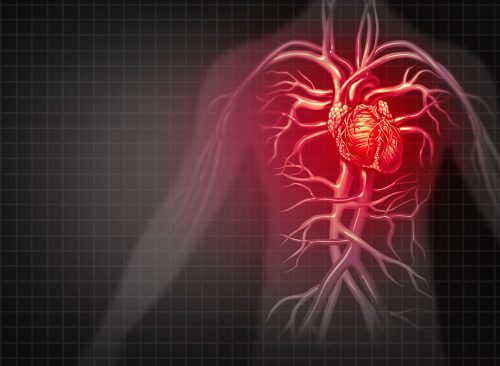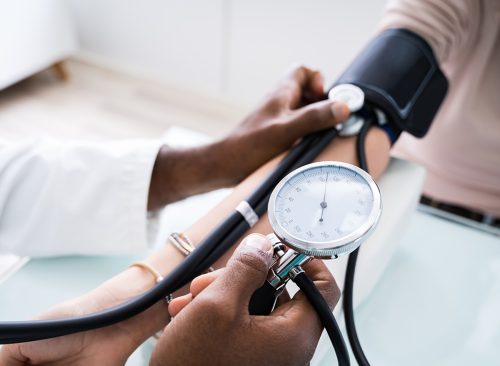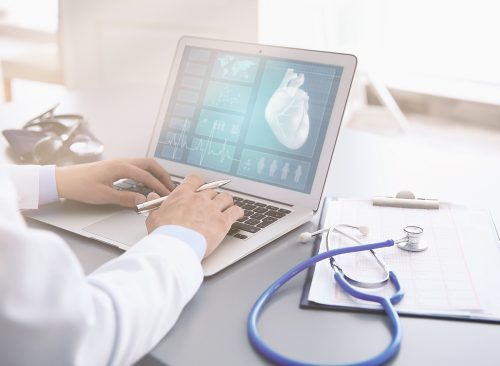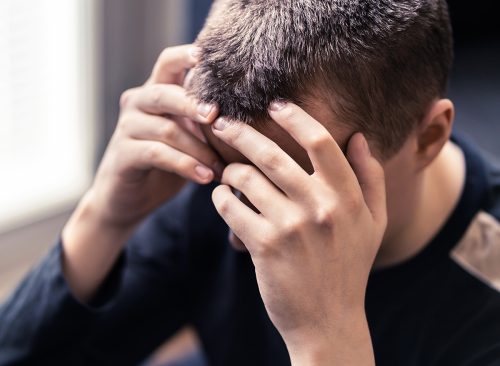Side Effects of Highly Caffeinated Drinks That Doctors Fear Most
Consuming an excessive amount of caffeine can lead to perilous outcomes.

Last week, the New York Times reported that a 21-year-old woman with a heart condition died after unwittingly consuming a lemonade at Panera Bread that contained as much caffeine as an energy drink. (The chain has since said they would educate customers about the drink's caffeine content.) It was a shocking read for many of us who've been known to lean on coffee, energy drinks, or pre-workout to get through the workday or a gym session—caffeine is reputed to be a relatively safe substance. However, excessive caffeine consumption can produce dangerous side effects in people with certain health conditions, of certain age groups, or even no risk factors at all. Here's what the experts say.

"The cardiac effects of highly caffeinated drinks can be extremely dangerous," says Dr. Robert Pilchik, a board-certified cardiologist with Manhattan Cardiology in New York City. "Caffeine causes an increase in heart rate, which is not necessarily dangerous. However, certain arrhythmias, such as atrial fibrillation, can be triggered, putting one at risk of having a stroke. Lethal arrhythmias and heart attacks have also been documented."

"Caffeine causes a temporary rise in blood pressure, an additional risk for having a stroke," says Pilchik. "This also may lead to dilation of arteries, formation of aneurysms, and rupture of large arteries. Long-term usage has been correlated to the development of heart failure."

"Those people who already have a diagnosis of hypertension or other cardiac issues are particularly at risk for developing complications from highly caffeinated beverages," says Pilchik. "Children and adolescents are also especially prone to the deleterious effects of caffeine."

"Excessive caffeine can also result in digestive issues, including acid reflux and stomach discomfort," says Trista Best, RD, a registered dietitian with Balance One Supplements. "It may exacerbate preexisting conditions like irritable bowel syndrome."

"Heavy caffeine use also is associated with an increased risk of other addictive behaviors, like smoking and alcohol abuse," the Mayo Clinic says.

Excessive caffeine intake can cause palpitations, tremors, and agitation, the Mayo Clinic warns.

"Prolonged and excessive caffeine consumption can contribute to caffeine dependence and withdrawal symptoms, making it challenging to function without it," says Best.

"Caffeine intake also is associated with nervousness, insomnia, irritability and panic attacks," the Mayo Clinic says. "Those with pre-existing anxiety disorders may be more susceptible to these effects."
RELATED: 90% of People Who Die From COVID Have This in Common

"The FDA has stated an amount of 400 mg per day of caffeine is safe for the average person. This is the equivalent of four cups of coffee spread throughout the day," says Pilchik. "A 12-ounce cola has 34 mg, and an 8.4-ounce Red Bull has 80 mg."














